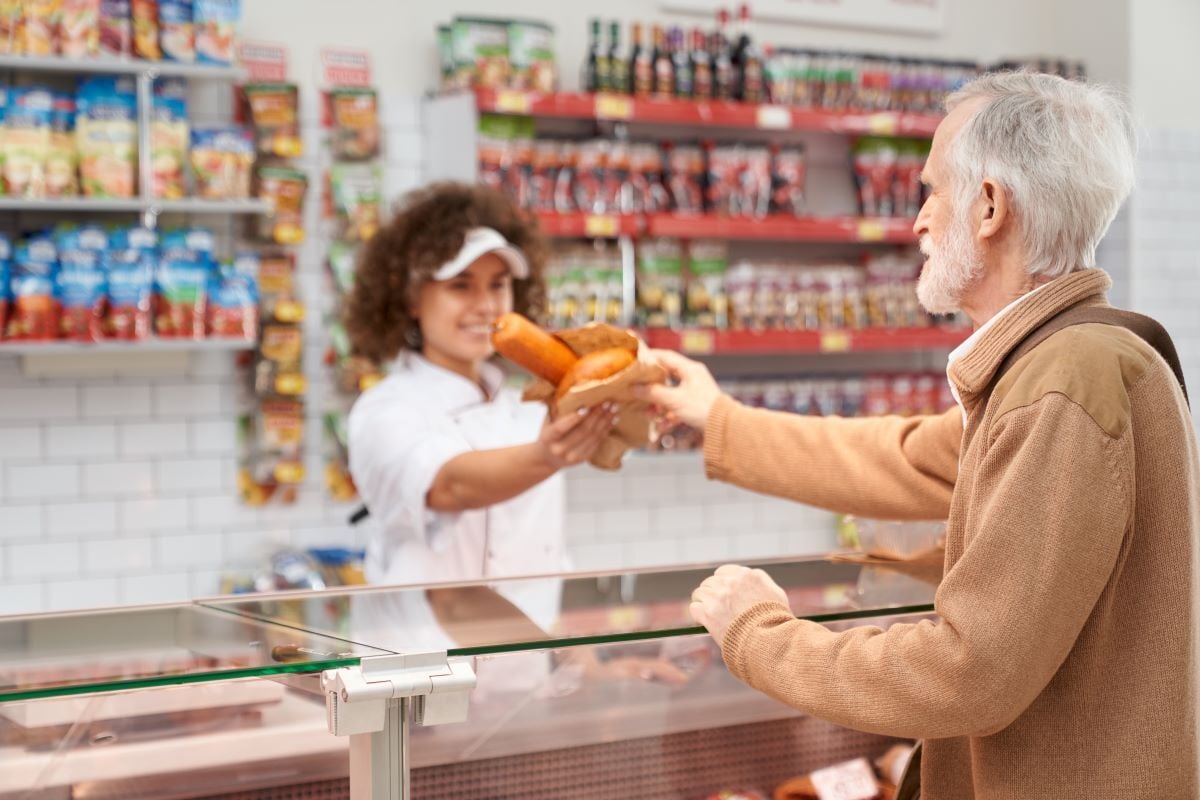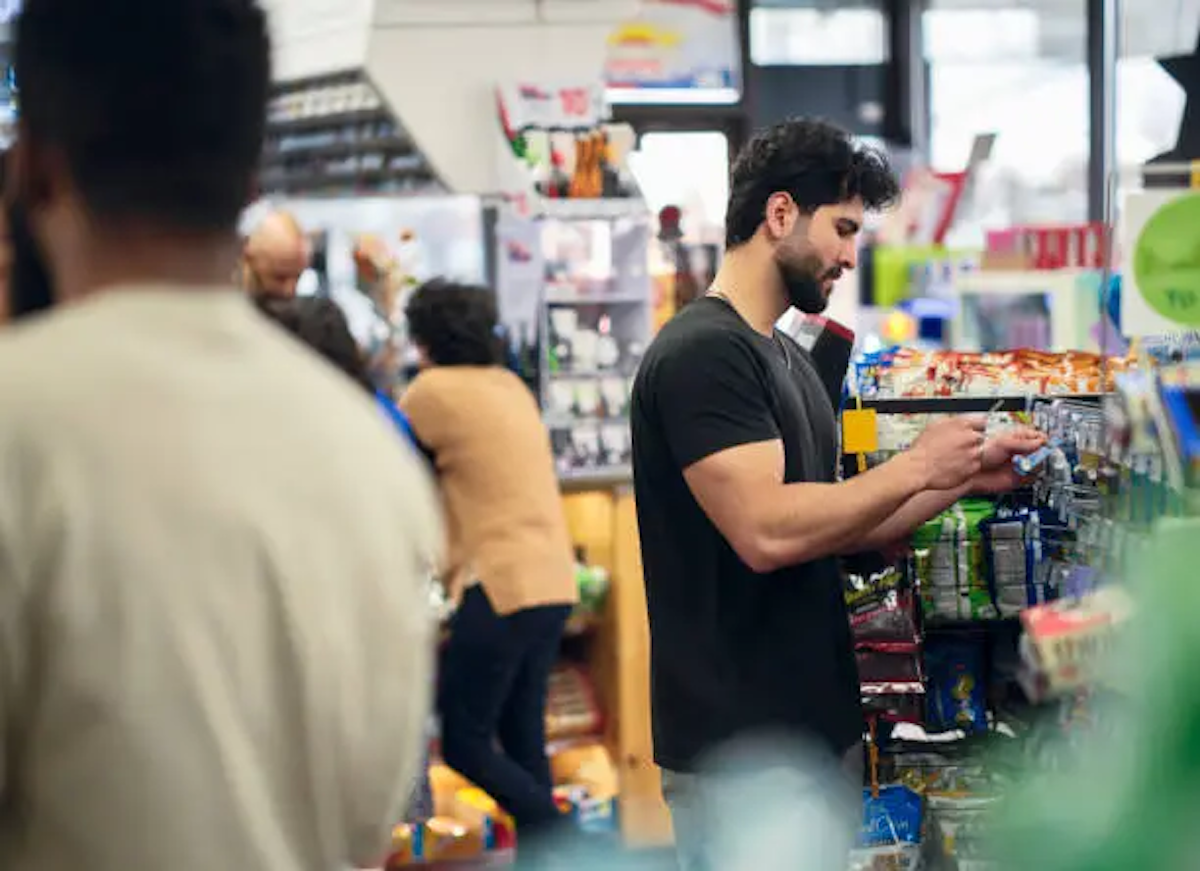13 min read
The 3 Convenience Store Industry Trends You Need to Know
Convenience stores are more than just gas stations or quick stops on a long road trip—they supply on-the-go customers with crucial daily essentials....
Platform
What is Paytronix Guest Engagement Suite?
Combining online ordering, loyalty, omnichannel messaging, AI insights, and payments in one suite. Paytronix delivers relevant, personal experiences, at scale, that help improve your entire digital marketing funnel by creating amazing frictionless experiences.
A Complete Guest Engagement Suite
Online Ordering
Acquire new customers and capture valuable data with industry leading customization features.
Loyalty
Encourage more visits and higher spend with personalized promotions based on individual activity and preferences.
Catering
Grow your revenue, streamline operations, and expand your audience with a suite of catering tools.
Kiosks
Boost revenue and loyalty with self-service kiosks.
Payments
Drive brand engagement by providing fast, frictionless guest payments.
Solutions
Paytronix Guest Engagement Solutions
We use data, customer experience expertise, and technology to solve everyday restaurant and convenience store challenges.
FlightPaths are structured Paytronix software onboarding journeys designed to simplify implementation and deliver maximum ROI.
Customer Success Plans (CSPs) are tiered service offerings designed to help you get the most from your Paytronix software, whether you prefer self-guided support or hands-on partnership.
Contactless Experiences
Accommodate your guests' changing preferences by providing safe, efficient service whether dining-in or taking out.
Customer Insights
Collect guest data and analyze behaviors to develop powerful targeted campaigns that produce amazing results.
Marketing Automation
Create and test campaigns across channels and segments to drive loyalty, incremental visits, and additional revenue.
Mobile Experiences
Provide convenient access to your brand, menus and loyalty program to drive retention with a branded or custom app.
Subscriptions
Create a frictionless, fun way to reward your most loyal customers for frequent visits and purchases while normalizing revenues.
Employee Dining
Attract and retain your employees with dollar value or percentage-based incentives and tiered benefits.
Order Experience Builder
Create powerful interactive, and appealing online menus that attract and acquire new customers simply and easily.
Loyalty Programs
High-impact customizable programs that increase spend, visit, and engagement with your brand.
Online Ordering
Maximize first-party digital sales with an exceptional guest experience.
Integrations
Launch your programs with more than 450 existing integrations.
Loyalty Programs
Deliver the same care you do in person with all your digital engagements.
Online Ordering
Drive more first-party orders and make it easy for your crew.
Loyalty Programs
Digital transformations start here - get to know your guests.
Online Ordering
Add a whole new sales channel to grow your business - digital ordering is in your future.
Integrations
We work with your environment - check it out
Tobacco Reporting
Comply with AGDC 2026 DTP Requirements
Company
We are here to help clients build their businesses by delivering amazing experiences for their guests.
Meet The Team
Our exceptional customer engagement innovations are delivered by a team of extraordinary people.
News/Press
A collection of press and media about our innovations, customers, and people.
Events
A schedule of upcoming tradeshows, conferences, and events that we will participate in.
Careers
Support
Paytronix Login
Order & Delivery Login
Resources
Paytronix Resources
Learn how to create great customer experiences with our free eBooks, webinars, articles, case studies, and customer interviews.
FlexPoint Service Catalog
Access FlexPoints are a cost-effective, flexible way to access our value-added services, to ensure you get greater impact from your Access software solution.
See Our Product In Action
E-Books
Learn more about topics important to the restaurant and c-store customer experience.
Reports
See how your brand stacks up against industry benchmarks, analysis, and research.
Blog
Catch up with our team of in-house experts for quick articles to help your business.
Case Studies
Learn how brands have used the Paytronix platform to increase revenue and engage with guests.
The brands winning now aren't competing on price. They're turning every transaction into a relationship. Discover how in the 2026 Trends Predictions Report.
8 min read
Oct 01, 2025

Convenience store vendors impact everything from your profit margins to guest experience. Whether you’re stocking shelves with trending beverages or trusted grab-and-go snacks, working with the right vendor ensures you get the products you need to meet guest expectations. After all, satisfied guests are more likely to return.
Yet, there are many factors to consider when choosing the best c-store vendors for your business. To help you find ones with the products your loyal guests want, we’ve built this guide. It breaks down the most in-demand c-store vendor categories and provides guidance on vetting partners to ensure they align with your business goals.
Whether you’re an independent convenience store owner, regional multi-unit operator, or category manager, strong vendor relationships help you meet your loyal guests’ needs. The following two areas illustrate why having these strong vendor partnerships is critical.
Vendor Managed Inventory (VMI) is an inventory strategy in which the vendor manages and replenishes a convenience store’s stock. However, before you decide which vendors to work with in a VMI capacity, you need to know the items your top guests repeatedly purchase.
These are the c-store products that you want to always have in stock. With these guest preferences in mind, select vendors that help you keep high-demand items in stock at a profitable rate.
Guests may choose to visit your convenience store because they feel confident they can find the products they want and have a pleasant experience. That said, your inventory can help your store stand apart from competitors. As you continue to provide a satisfying experience for guests, you’ll gradually build a reputation in your community, one that draws both new and repeat guests, thus boosting your profits.
As you search for the best vendors for your convenience store, have these seven product categories in mind.
Convenience store guests are often looking for a quick stop to refuel and rehydrate, so you want to have a variety of beverages available. Examples of drink suppliers may include Red Bull, Monster, Celsius, or Liquid Death. In addition to the major brands, pay attention to popular local drink brands and work with local vendors to stock your shelves.
As you consider options for beverage vendors, look for characteristics like a strong delivery track record and schedule, support with building eye-catching displays, and co-op marketing opportunities. Additionally, choose a vendor with a robust c-store drink list. These factors can help you discern which beverage vendors could be the best fit for your convenience store.
Guests may want a snack to go with a refreshing beverage. Small, packaged snacks, like candy, trail mix, chips, or jerky, can be impulse purchases that you display near the check-out counter or light fare to help your guests stave off hunger.
When you vet potential suppliers for pre-packaged goods, look for ones with these two characteristics:
Pre-packaged snacks make up a large portion of total food stock for many c-stores. However, for the guests that want more than a small snack, you'll want to keep fresh food in store.
Guests in the middle of their busy day may want more substantial food from your convenience store. Here is where stocking fresh and refrigerated food items, like sandwiches, salads, dairy items, and sliced fruit, will meet that need.
Because these types of foods have a more limited shelf life than pre-packaged items, make sure you ask potential vendors about expiration dates, food packaging practices, and transportation. It’s important that these kinds of foods get from point A to point B with proper refrigeration and storage. Additionally, make sure your team is knowledgeable about food safety practices and precautions.
For the early morning crowd or guests who need an afternoon caffeine pick-me-up, keep coffee or other hot beverages available. When looking for coffee or tea vendors, try checking out your local brands. However, if you manage multiple locations, it could be more cost-effective to purchase coffee in bulk from a larger distributor.
When you consider vendor options, prioritize ones that offer brewing equipment and training for your employees. That way, if you run into any hurdles with the dispensers, your team can problem-solve before it risks harming your profits or guest satisfaction.
Pro Tip: For many guests, a convenience store is a go-to spot every morning for coffee or tea. One of the best ways to keep these guests coming back is through integrating with a loyalty program, so your guests earn rewards when they purchase from your store. To learn more, check out our article on how to choose the right loyalty program for your convenience store.
Tobacco products are regulated items with high repeat purchase rates. Often, guests have a go-to convenience store where they purchase tobacco-related items.
Because of this, it’s worth it to find vendors with low MOQ. At the same time, it’s important that you and your team know the rules around selling these types of goods, and vendors can help.
As you vet vendors, check in on how they provide support to verify a guest’s age and ensure compliance when selling tobacco-related items. Their answers to your questions here can also indicate how they communicate and collaborate as a partner for your business.
Depending on the location of your convenience store, it could be necessary to stock basic grocery and household essentials. Examples of staple grocery items include eggs, bread, peanut butter, and canned goods. Health and beauty items would include over-the-counter medicines, toothpaste, soap, and other toiletries.
These types of goods are often sourced via wholesale grocery distribution services or consumer packaged goods (CPG) partners. For the grocery, household, and bathroom essentials that have a longer shelf life, buy in bulk for cost savings and efficiency. Your guest purchasing data can guide you on exact product quantities and order timing.
You can support local and small specialty businesses by purchasing their products to sell in your convenience store. Ideally, your stock is a blend of well-known brands and ones known to your local crowd.
Even guests who are just passing through may be interested in trying a local jerky or regional baked goods. Additionally, because you’re working with local companies, it can be easier to form long-lasting relationships that benefit both parties.
Follow these four steps as you consider, choose, and onboard vendors for your convenience store:
First and foremost, you want to provide your guests with the products they want and love. Start by reviewing data from your repeat visitors. You can analyze c-store point of sale (POS) system data to see which products your guests purchase most often.
Next, consider vendors based on which ones offer these items. It’s also worth seeking guest feedback. That way, you hear directly from your visitors which products they love or if there are new items they want to see in your store.
Pro Tip: Help your guests get to know your business by following these tips for how to increase brand awareness.
Once you’ve narrowed down a list of potential vendors, the next step is to break down their operational details. Compare factors like per-unit costs, MOQs, return policies, and support for merchandising and promotions. Use these details to gain a sense of what your partnership could look like with any given vendor.
Inquire about vendors’ approaches for advertising new or limited-time products and see if they offer display set ups. They might also feature marketing support like outdoor signage, branded fridges, endcaps, or digital offers.
As a general rule of thumb, choose vendors that want to build a long-term partnership and help you to market their highest quality products in your store.
To optimize inventory management, analyze how your prospective vendors handle technology integrations. Ideally, their tools sync with your inventory systems or back-of-the-office software. That way, you can strategize when you restock, which items you order on a regular basis, and experiment with new products among your guests.
As you select vendors, keep in mind your style of convenience store. Here are three types of stores and how you could approach stocking shelves for each.
Local, independent convenience stores are often small, family or individually owned establishments. So those may have a tighter budget or smaller guest base.
That said, independent stores need to focus on being agile by stocking local goods or trending items. Quick-turn vendors help you stay agile by being able to meet your needs as those needs change. As a result, your vendor becomes a strategic part of your business model and helps you stay ahead of the competition.
If you own or operate a convenience store with several locations, you’re trying to balance consistency with cost efficiency. Your guests expect to have similar experiences across your locations.
To support high-quality guest experiences, work with vendors that have wide-scale regional or national logistics. Vendors with this kind of reach will help ensure your guests have good experiences every time they visit one of your locations.
Location is an important factor when considering vendors and products. For example, a store in an urban area is more likely to sell snacks, energy drinks, or grab-and-go items. It’s intended to be a quick stop for a small pick-me-up.
However, a rural store needs to stock everyday use products, like grocery staples, household essentials, and community-focused brands. There is generally less access to standard retail stores and grocery stores in rural areas, so convenience stores can help fill that gap by stocking the basics.
While you look for the best qualities in your vendors, you should additionally keep in mind these common mistakes that could hinder your inventory management.
You want to work with vendors that offer reasonable prices for their products. However, low prices mean little if a vendor has poor fill rates or support performance.
Find vendors that strike a balance between offering fair prices and maintaining high performance. As a bonus, pay attention to how they communicate. A great relationship with your vendors relies on having good and clear communication.
Any supply chain interruptions or missteps that your vendors encounter will impact your business. If you only have one supplier, your convenience store is more at risk of experiencing a major interruption if that vendor falters.
You can lower your risk by diversifying vendors. That means you have multiple vendors to cover your critical product categories. You might also have secondary vendors, so you can quickly switch if your primary one stumbles.
A successful convenience store is one that meets its guests’ needs. The best way to do this is by collecting and analyzing guest behavior data, keeping in mind that your top 20% of guests often drive 80% of your revenue. The first step before looking at your vendor options should be assessing guest data to better understand who your most loyal guests are and what they most likely want from your business.
Pro Tip: Use these top guest retention strategies to build a loyal customer base.
These are our answers to common questions about convenience store vendors.
To get vendors for convenience stores, start by learning about your guests and their purchasing habits. Next, consider your options for suppliers based on guest needs. Historical vendor performance informs the types of products your guests favor, then you can select vendors accordingly.
The best strategies to find vendors for a convenience store include using online marketplaces, learning of good suppliers through word-of-mouth, or using platforms that are designed to help connect vendors and buyers.
The most profitable items in a convenience store are usually fountain drinks and coffee, grab-and-go snacks, and lottery tickets. They tend to be high-margin products.
Most vendors purchase their merchandise from wholesalers and distributors. They may also purchase directly from manufacturers or retailers. Usually, vendors purchase goods at a bulk discount to sell to their buyers.
Stores often send unsold merchandise to discount or outlet stores. Depending on the product, they could also donate to charities or recycle.
Smart Vendor Partnerships Grow Your Business Faster
Partnering with the right mix of vendors helps you stand out, serve your most loyal guests, and boost your bottom line. For long-term revenue and business growth, choose suppliers that support your store's vision—and your operational needs.
Want tools that help you understand your top-selling products and guests? Book a demo and see how Pantronix helps c-stores grow through data-powered guest engagement.

13 min read
Convenience stores are more than just gas stations or quick stops on a long road trip—they supply on-the-go customers with crucial daily essentials....

16 min read
Marketing incentives work by presenting your guests with an additional offer beyond the standard products or services. It promotes customer...

14 min read
Father’s Day is a holiday dedicated to showing appreciation for the father figures in one’s life. Families and friends gather to celebrate, whether...